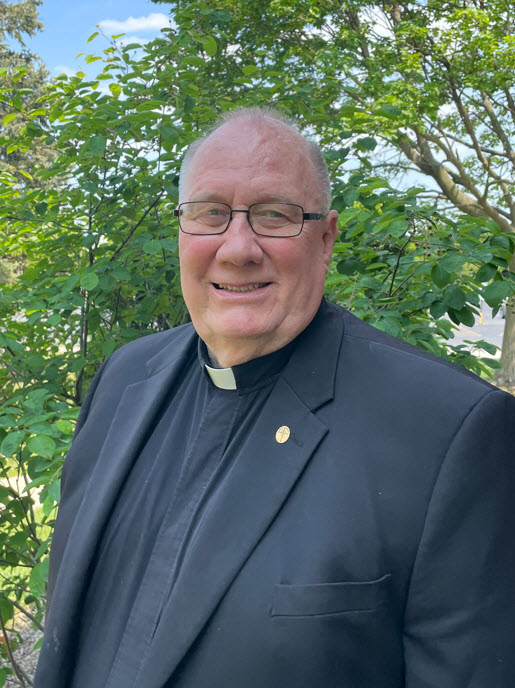October 15, 2023

On this middle Sunday of the month, we celebrate the 28th Sunday of Ordinary Time and continue our observance of Respect Life month. As we gather this weekend, we hear in the Gospel that the tension between Jesus and the religious leaders continues to escalate to the near-breaking point. Matthew’s inclusion of this parable of the wedding feast at this point in his Gospel helps him make sense of the situations faced by the church at the time he wrote his gospel. In 70 A.D., the Romans had already destroyed both the Temple and the city of Jerusalem. Matthew interpreted this as the consequence of Israel’s rejection of Jesus and their hostility and violence toward the Christian community. Many were asking what direction to take, now that the Temple and Jerusalem were in ruins. Matthew’s answer – become a disciple of Jesus of Nazareth! As we know and profess – Jesus is the way, the truth and the life! Sadly, we will see the Pharisees response to Jesus and their repeated attempts to trap him in next week’s Gospel.
No one can face life in isolation… We need a community that supports and helps us, in which we can help and support one another to keep looking ahead. How important it is to dream together…
Pope Francis
A few weeks ago, I was the main presenter at our OCIA session following the 10:00 am Mass. I called the presentation “God’s Call – Abraham and Moses,” and I explained some key ideas about the way we see ourselves as a church. In the second chapter of Vatican II’s Constitution on the Church, we call ourselves the “new people of God.” I cannot stress too much how basic this idea is to the understanding of our Catholic faith and of ourselves. For those who are thinking of becoming Catholics, this idea of a “people religion” (God & us) explains some of the difficulties they might or will have.
The Sacrament of Reconciliation is certainly the one aspect of our faith which causes the most difficulty for prospective converts. They usually ask, “Why should I tell my sins to a priest? I can just go to God directly to have my sins forgiven.” This illustrates one of the basic differences between Protestantism and Catholicism. Protestant religions tend to be individual religions (God & me), relying on the private reading and interpretation of the Bible. Many Protestants are inclined to think of sin as an offense only against God and naturally feel that reconciliation is only necessary with God. But a Catholic, being a member of a “People Religion” (God & us), sees a social side to sin. My sin includes both my offenses against other people and my offenses against God. The priest, in the Sacrament of Reconciliation, reconciles the person to God’s people, the Church, and to God through this reconciliation with the Church. So, before many Protestants are able to accept the practice of celebrating the Sacrament of Reconciliation, they first have to accept the idea of “social sin,” and (even before that) this way of looking at religion itself.
Additional aspects of our faith grow out of our seeing ourselves as a “God and Us” and a “people religion.” The way we see the Bible is another key result of our seeing ourselves in this way. Various members of the people wrote the different books of the Bible over hundreds of years. From age to age, our ancestors in faith recorded their experiences with God so that we could recognize the touch of God when we had similar experiences. God had to first gather a people and relate with them before the story of God’s relationship with the people could be written. The Bible is our story – the story of God’s relationship with us. Seeing ourselves as the community of the disciples of the Lord Jesus is another way of expressing our roots as a “God & us” community. We journey to God together throughout our lives with each other.
The idea of a “people religion” also explains other things, which are unique to being a Catholic Christian. One is that we honor the saints, because they are one with us, as members of the same people. We stand on the shoulders of those who have gone before us, and we are still connected to them. Another aspect is that we stress the Sunday Mass obligation, because we are called to worship God not only as individuals, but together as a people. Finally, we have so many different symbols and ceremonies to express our faith, because so many people over the ages have contributed from their culture to the practice of the people as a whole. Some interesting thoughts…hope they are helpful.
Last week’s cooler temperatures have brought out the autumn colors. The beauty all around us is the Lord’s gift to us in this present moment. Please see our weekly bulletin for additional news of the many things happening at our parish. May God continue to bless us with all that we need, and more.
– Father Jim Murphy
